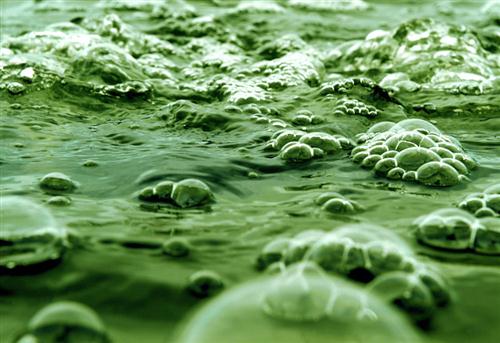ExxonMobil Biofuel Advert Officially Pronounced as Greenwash
Posted by keith on March 10th, 2011
ASA Adjudication on ExxonMobil UK Ltd
ExxonMobil UK Ltd
ExxonMobil House
Ermyn Way
Leatherhead
Surrey
KT22 8UX
Date: 9 March 2011
Media: Television
Sector: Utilities
Number of complaints: 1
Agency: Euro RSCG London Ltd
Complaint Ref: 141542
Ad
A TV ad for ExxonMobil UK Ltd (ExxonMobil) featured a scientist talking about researching algae as a source of biofuel. He said, “In using algae to form biofuels, we’re not competing with the food supply, and they absorb CO2, so they help solve the greenhouse problem as well.”
Issue
The complainant, who believed that any carbon dioxide (CO2) absorbed by algae would be re-released back into the atmosphere when it was burned as fuel, objected that the ad misleadingly implied that the technology would reduce CO2 levels.
BCAP Code
3.1 3.2 3.9 9.5
Response
ExxonMobil UK Ltd (EM) said one of the advantages associated with second generation biofuels like algae, was their potential to reduce greenhouse gas emissions by partial replacement of conventional transport fuels derived from hydrocarbons. They said lifecycle analysis showed that using second generation biofuels resulted in lower greenhouse gas emissions compared to conventional fuels. They said this was because biofuel feedstocks absorbed CO2 from the atmosphere and therefore the CO2 emitted during their combustion did not contribute to additional CO2 emissions.
EM also provided a study from the Joint Research Centre of the European Union, which they claimed proved that second generation biofuels achieved greenhouse gas reductions on a comparative basis. They acknowledged that the study did not specifically analyse algae. They said that algae as a source of biofuel was an emerging area of scientific analysis. However, they maintained that it was generally agreed that algae had a potential for high productivity compared to conventional biofuels.
EM provided a third-party report that concluded that the world community could slow and then reduce global emissions of greenhouse gases over the next several decades by utilising a range of public policies and current and emerging technologies. The report detailed a range of actions that could reduce emissions from key sectors, including using new and emerging technologies. It mentioned that biofuels had the potential to replace a substantial part of the petroleum now used by transport.
EM said that solving the greenhouse problem could mean many things as there were many different stabilisation scenarios being discussed by the scientific and world communities. They said that a core component of any stabilization scenario was the reduction of greenhouse gas emissions; furthermore, it was generally recognised that biofuels could play a key part in this.
They provided information which they believed supported their view that fuel switching was commonly discussed among policymakers, scientists and industry as a means of helping to solve the issue of rising greenhouse gas emissions. They said the ad made no claim to the effect that advanced biofuels such as algae could achieve this result on their own.
Clearcast pointed out that the ad stated, “Algae could be converted into biofuels that we could someday run our cars on” and “We’re making a big commitment to finding out just how much algae can help meet the fuel demands of the world”. They said the ad made clear that the technology was still being developed. They said, in this context, viewers would understand the claim “In using algae to form biofuels, we’re not competing with the food supply, and they absorb CO2, so they help solve the greenhouse problem as well”, related to what the advertisers hoped the technology would achieve. They also claimed the study provided by the advertiser proved that algae produced less CO2 than hydrocarbon fuels on a comparative basis.
Assessment
Upheld
The ASA noted the ad referred to “unlocking the potential in algae” and considered it had made clear it was an emerging technology. Nonetheless we considered the ad made an objective claim that algae, if developed as a source of biofuel, would help solve the greenhouse problem. We noted that, by absorbing CO2 from the atmosphere and then re-releasing this CO2 when combusted, the technology would not add new greenhouse gases into the atmosphere. Because of this we considered the technology could have a mitigation benefit. We noted the reports submitted by EM and acknowledged that many stabilisation scenarios highlighted the importance of reducing greenhouse gas emissions as part of tackling the greenhouse problem.
We also noted that the ad stated “In using algae to form biofuels, were not competing with the food supply, and they absorb CO2, so they help solve the greenhouse problem as well”. We considered that viewers would infer from this that it was because of the absorption of CO2 from the atmosphere that using algae to form biofuels helped “solve the greenhouse problem”, by acting as a carbon sink. We considered this claim went beyond stating the mitigation benefit. Because we understood that any CO2 absorbed by the feedstocks would eventually be re-released into the atmosphere, we concluded that the ad overstated the technology’s total environmental impact and was therefore misleading.
The ad breached BCAP Code rules 3.1 and 3.2 (Misleading advertising), 3.9 (Substantiation) and 9.5 (Environmental claims).
Action
The ad must not be broadcast again in its current form.





